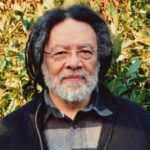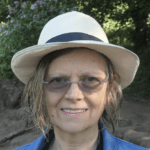Friday, April 04, 2025
1:20 – 2:25 pm
J. Baskin Aud 101 (flyer)
On Friday, April 04 at 1:20 pm, you are invited to join S&J affiliate and Associate Professor of Biomolecular Engineering Karen Miga’s BME 80G Bioethics course for a talk by Jonathan LoTempio on the foundational aspects of bioethics as it developed in the last 80 years.
A zoom option or recording may be available for members of the campus community who cannot attend in person. Contact Colleen Stone (colleen@ucsc.edu) to request access.
Nuremberg moments: bioethics pasts and futures
Bioethics as we understand it today is a product of the rules-based international order. It is a unique field of study because it has been sanctioned or supported at the highest level of government, rather than devolved to specialist agencies. However, this position is changing, offering time for stock-taking and consideration of new futures. In this seminar, we will discuss some pre-World War II antecedents of 20th-century bioethics, the bioethical wilderness from the War and Nuremberg up until the Belmont Report, and the Commission Era from 1974-2016. With this foundation, we will consider the futures of bioethics, public health ethics, and data ethics in light of our newly fractured rules-based order.
Dr. Jonathan LoTiempo Jr, Fellow in Ethical, Legal, and Social Implications of Genetics and Genomics at Penn Medical Ethics & Health Policy.
Dr. Jonathan LoTempio Jr. is a globally engaged researcher working at the intersection of genomics, bioethics, and international policy. As a postdoctoral fellow in bioethics and human data at the University of Pennsylvania’s Perelman School of Medicine, he studies the ethical, legal, and social implications of emerging genomic technologies within an international framework.
LoTempio’s contributions to the field span bioinformatics, science diplomacy, global health, and bioethics initiatives. During his doctoral work, he expanded an extant medical collaboration between researchers in Washington, DC and Kinshasa, DR Congo to include reference genomics projects to enhance diagnostic rates for rare and inherited conditions in sub–Saharan Africa. As a Fulbright Schuman Fellow, he conducted research at the Institute for Advanced Studies in Vienna, Austria, and United Nations University-CRIS in Bruges, Belgium, where he examined the role of science and technology in international governance with a focus on data sharing. He spent the summer after his Fulbright doing archival research at the UN Office at Geneva in search of the postwar antecedents of open science. Woven through each of these has been a commitment to enhancing ethical research and fundamental study of bioethics.
He has been funded by the US National Institutes of Health, the French Centre National de la Recherche Scientifique, the US Department of State and the EU Directorate General for Education and Culture through the Belgium-Luxembourg Fulbright Commission, the Chan Zuckerberg Initiative, San Francisco, California, the Clark Family Foundation of Bethesda, Maryland, and the Cosmos Club of Washington, DC.
He holds a BS in biochemistry (University of Rochester) and a PhD in genomics and bioinformatics (George Washington University). Before his academic career, he spent three years working in program management and policy evaluation at the US National Institutes of Health and the Obama White House’s Office of Science and Technology Policy.
Readings
-
Nuremberg Doctor’s Trial PDF (get from instructor)
-
Section: Judgment – Permissible Medical Experiments (pages 11-14 only, charges on pages 6-11 may be disturbing but instructive)
-
-
Obama’s apology to the Guatemalan president
Required papers:
-
The Nuremberg Code at 70 (free online): https://jamanetwork.com/
journals/jama/fullarticle/ 2649074 -
Public Health Ethics: mapping the terrain (attached): https://www.cambridge.org/
core/journals/journal-of-law- medicine-and-ethics/article/ abs/public-health-ethics- mapping-the-terrain/ 415AE80C221FD84CDF5067898F7F74 25
-
Wikipedia on the rules-based order: https://en.wikipedia.org/wiki/
Liberal_international_order -
Marshall Plan speech at Harvard, 1947: https://www.oecd.org/en/about/
history/the-marshall-plan- speech-at-harvard-university- 5-june-1947.html -
Elenor Roosevelt speech on the struggle for human rights at Sorbonne, 1948: https://erpapers.columbian.
gwu.edu/struggle-human-rights- 1948 - Nature article, “Overcoming challenges associated with broad sharing of human genomic data,” bibliography is very good for genomics / data / engineers.
Co-hosted by the UCSC Department of Biomolecular Engineering, the Genomics Institute, and the Science & Justice Research Center.









